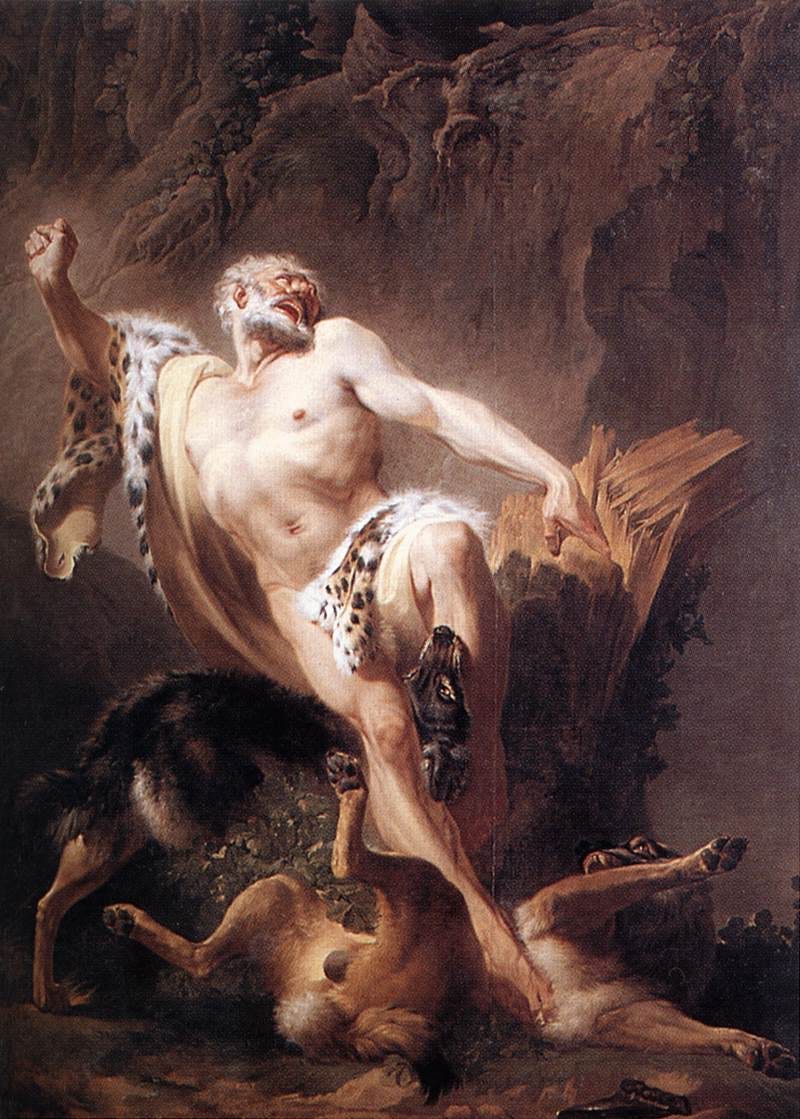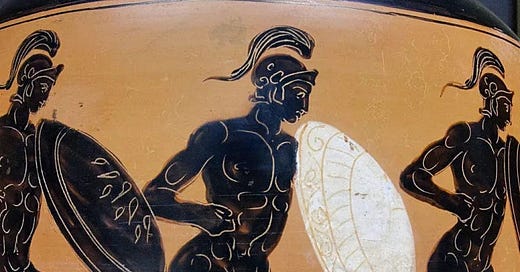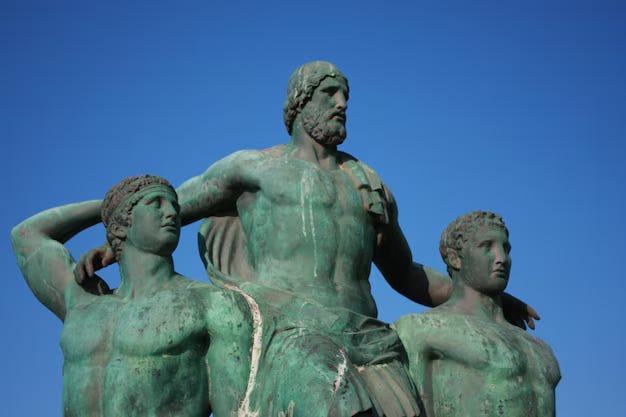Dear Classical Wisdom Kids,
As the Paris 2024 Olympics comes to an end, so will our Olympics dedicated issues... We’ll soon return to our regular postcards, videos and ancient lessons for future minds. But, before it’s all over, we wanted to share some fun olympic inspired games and recreations for your kiddos. Classical KIDS members, check out our Olympic challenges below and let the young ones channel their inner olympian.
In fact, to get them inspired, first check out the most famous ancient olympians, the noble competitors who fought to be the greatest physical specimens of The Greatest Civilization! Who was the happiest, the saddest and the most famous for splitting their headband with the forehead veins? Let’s have a look at some of them, shall we?
All the best,
Anya Leonard
Founder and Director
Classical Wisdom and Classical Wisdom Kids
Top Ancient Olympians
5. Coroebus of Elis – the first
A humble cook who grew up near the sanctuary of Olympia, Coroebus was the first man whom we can definitely say was an ‘Olympic champion’. He won the only event at the very first recorded Games in 776 BC – the stadion (which was an approximately 200 meters run).
4. Leonidas of Rhodes – the most prolific
Leonidas was the most successful Olympian ever.
Leonidas won the stadion, diaulos (circa.400 meters) and the hoplitodromos (a diaulos carrying 59lbs of armour) at each of the 164 BC, 160 BC, 156 BC and 152 BC games.
These twelve individual first-place finishes (the last of which he achieved at age 36) narrowly surpasses the 11 golds of Michael Phelps… It should be noted that while Phelps did technically win more golds overall, some of those were in relays… and none while wearing battle armor. (Simone Biles has famously beat Michael Phelps’ record… but also wasn’t wearing armor.)
3. Diagoras of Rhodes – the happiest
Rhodes’ second favorite son, Diagoras, was considered not only the happiest Olympian, but the happiest man in the world!
Descended from heroic royalty, Diagoras won the Olympic boxing crown twice. As if this weren’t enough to raise a smile, his eldest son twice triumphed in the brutal pankration. On the second occasion, in 448 BC, Diagoras’ second son simultaneously triumphed in boxing.
Hoisted on top of the shoulders of his son, someone in the crowd called out “Die, Diagoras; you will not also ascend to Olympus”. The humor of which was probably only appreciated later, as Diagoras promptly dropped dead on the spot.
2. Astylos of Croton – the saddest
A runner of great renown, Astylos was a highly controversial figure…
The reason being that, after bringing honor to Croton in the games of 488 BC, he turned-coat and, in 484 BC and 480 BC, decided to run for the rival Sicilian city of Syracuse.
His statue in Croton was destroyed, his disgraced family disowned him and his former lodgings were thought unworthy of a free man and were transformed into a prison.
The greatest sprinter of the 480s died a lonely exile, far from his family and friends.
1. Milo of Croton – the most impressive
Unlike Astylos, Milo was someone of whom Croton could really be proud.
Milo won five Olympic wrestling crowns consecutively between 536 – 520 BC.
Amazingly, these gongs may not represent the greatest achievements of Milo’s life.
He was said to have led a successful military assault against Sybaris in 510 BC and to have saved the life of Pythagoras (yes, THAT Pythagoras) by holding up the roof of a collapsing building. Consequently, he was given the mathematician’s daughter’s hand in marriage.
Less important, but no less impressive, are his alleged feats of strength and appetite.

He was said to have carried a bull on his shoulders before killing, cooking and eating the entire beast. Though this was perhaps excessive, his normal daily diet was 20 lbs of meat and 20 lbs of bread all washed down with 12 bottles of wine.
And completely uselessly, though again impressively, he was able to burst a headband simply by swelling the veins on his temple.
As so often happens with an unbelievable life, Milo suffered an unbelievable death, he was eaten alive by wolves because his hands were stuck in a tree trunk.
There is something deeply impressive and stirring about the achievements of all these citizens. They pushed their bodies to the extremes for the guarantee of no more gain than a crown of olive leaves.
However, like generals, poets and statesmen, what they were truly yearning for was neither gold or even praise, but immortality. And although such a thing cannot realistically be attained by any man in any field, the fact that their names ring clear and true 2800 years after the event means their ‘athl’, their labors and suffering, cannot be said to have been in vain.
Olympic Games and Challenges
If you're interested in ancient Olympic-themed games for kids, you can adapt some classic Greek sports and activities into fun and engaging challenges. Most of these games are really easy to set up and play, but even better, they come with storied history! Here are a few ideas:
Keep reading with a 7-day free trial
Subscribe to Classical KIDS to keep reading this post and get 7 days of free access to the full post archives.





